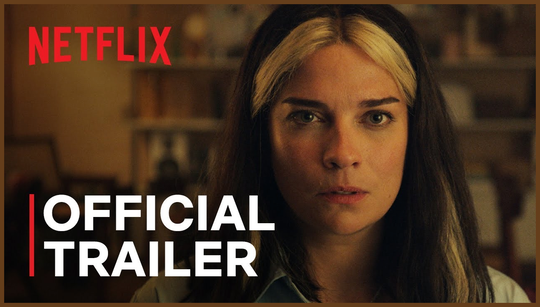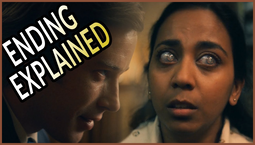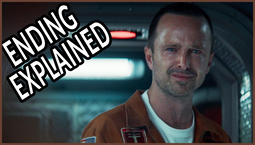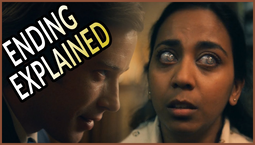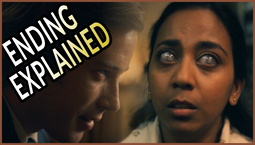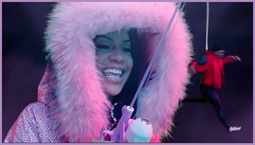The sixth season of Black Mirror
The sixth season of Black Mirror has divided audiences. Some fans can’t get past the fact that the latest batch of episodes don’t revolve around technology, while others appreciate the change of pace. Personally, falling somewhere in the middle, the season may not be the best, but it still offers a unique perspective by focusing on different themes.
As someone who has spent years writing about tech and the internet, I understand the temptation to view Black Mirror through a technological lens. The show’s early episodes are among the most prescient ever seen, and Black Mirror is partially responsible for shaping my worldview. However, it is also important to recognise that there are other important things to focus on, and it’s possible to enjoy the show while recognising its shortcomings.
Out of the five episodes in season six, only two – “Loch Henry” and “Demon 79” – explicitly revolve around technology. However, the show’s title, Black Mirror, refers to the reflection of ourselves through the filter of technology. Even when not explicitly about tech, the episodes still serve as reflections of our society.
Three episodes in particular stand out for their non-tech focus: “Loch Henry,” “Joan Is Awful,” and “Demon 79.” Loch Henry delves into racial tensions, the true crime craze, and the consequences of mining personal lives for content. Joan Is Awful explores the exploitation of people’s lives for profit by platforms like Streamberry. Demon 79 touches on race and alludes to the possibility of nuclear war and the destruction of cities.
It also serves as a framing device for the season, with recurring elements like a Tory politician and a demon glyph. This serves as a brilliant storytelling device, effectively uniting the disparate stories and turning each episode into a piece of a larger puzzle.
“Mazey Day” focuses on celebrity culture, parasocial relationships, and the harm caused by paparazzi culture. While not a standout episode, it effectively holds up a mirror to society.
Black Mirror creator Charlie Brooker intentionally upended his own assumptions for this season to keep things fresh. The new elements introduced expand the parameters of what a “Black Mirror episode” can be. However, the stories still maintain the tonal essence of Black Mirror. The show continues to examine the worst parts of human nature, which is why it remains true to its core.
In an interview with The Ringer, Brooker himself acknowledges that the show has evolved, just as we have, but it still accomplishes its goal. “I think the show has changed,” Brooker says. “I think we all change, too. I think the world has changed, and I’m less certain about a lot of things than I was. But I still think there is a need for the show, and a need for what it does.”
In the ever-changing world of Black Mirror, it’s essential to stay open-minded and embrace the unexpected. Black Mirror is still Black Mirror, even if it isn’t explicitly about tech anymore. The latest season may have divided audiences, but it remains thought-provoking and relevant.
